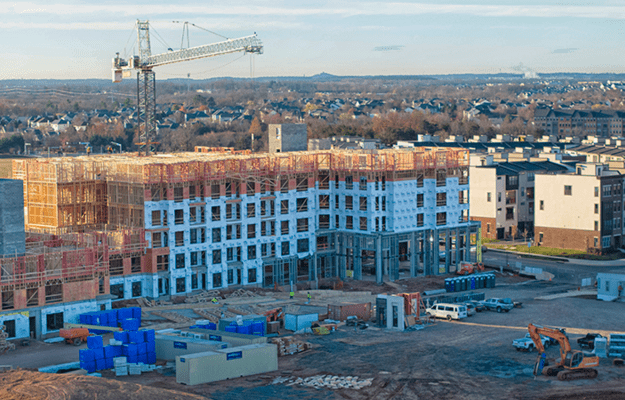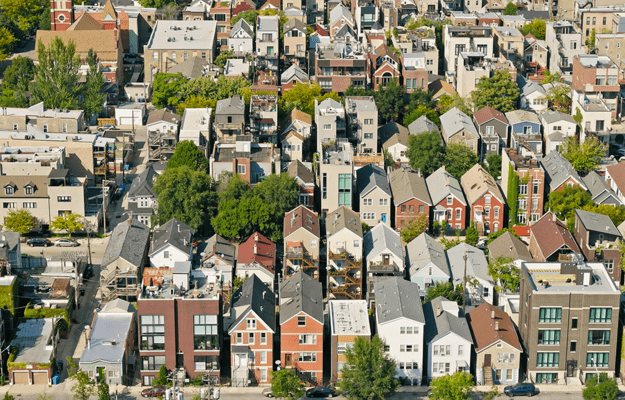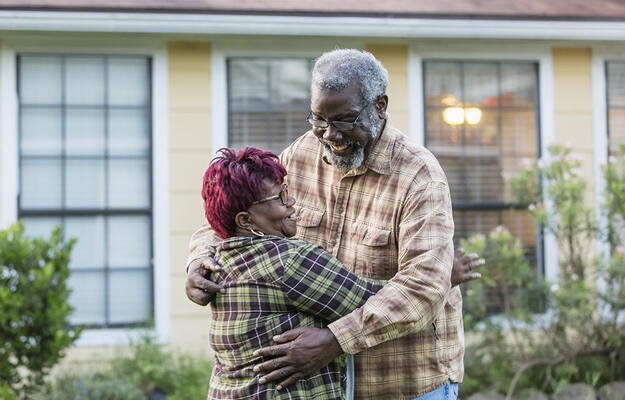
(Kathleen K. Parker/Shutterstock)
Transgender and Gender Nonconforming People Experiencing Housing Insecurity Rely on Chosen Family for Basic Needs
- Title:
-
“Housing Insecurity Seems to Almost Go Hand in Hand with Being Trans”: Housing Stress among Transgender and Gender Non-conforming Individuals in New Orleans
- Author:
-
Jennifer Glick, Alex Lopez, Miranda Pollock, Katherine Theall
- Source:
- Publication Date:
-
2019
Trans and gender nonconforming individuals (T/GNCI) face a wide array of unique obstacles to housing-related services, including rental, credit and loan, and shelter support discrimination. These barriers put them at greater risk of experiencing housing instability. This is especially true for T/GNCI who are also Black, Indigenous, or people of color. But to date, very little research about T/GNCI housing insecurity exists. To fill the gap, the authors of this study conduct the first investigation of housing insecurity experiences, causes, and coping mechanisms among T/GNCI living in the Deep South.
The study focuses on New Orleans, Louisiana—a city with legacies of discriminatory and segregating state policies; a large T/GNCI population; and structural housing issues, such as gentrification, high poverty rates, and mass-displacement amplified by disaster capitalism and environmental degradation—all compounded with systemic transphobia. Data from the US Transgender Survey show 32 percent of transgender respondents in Louisiana, compared with 23 percent in the US, experienced transgender-related housing discrimination in the past year.
The authors conducted in-depth interviews with 17 people focused on demographics, personal experiences and community accounts of housing insecurity, sexual orientation and gender identity, early and current life stressors, and coping strategies. Of the 17 participants, 10 identified as white or white/Hispanic and 7 identified as African American, Black, and/or African Indigenous. More than half of the participants attended some amount of college or trade school. All respondents were T/GNC: six identified as women, trans women, or female; four identified as male, transgender men, or transmasculine, and five as genderqueer, gender nonconforming, nonbinary, or bigender/agender.
Key findings
- Intersectional stigma and discrimination, coupled with gentrification and unsupportive housing policies, founded within oppressive structures like racism, misogyny, capitalism, and transphobia, contribute to T/GNCI housing insecurity and vulnerability.
- Respondents noted that transgender women and transfeminine people, especially those who are Black, Indigenous, or people of color, experience exacerbated obstacles because they experience the compounding discrimination of transmisogyny and racism.
- The impacts of disaster capitalism and shifts toward tourism in New Orleans housing (e.g., through Airbnb) constrain housing choices for people with low incomes. White trans people experiencing poverty may not be able to afford housing outside of historically Black neighborhoods, becoming “first wave gentrifiers,” even if they are ethically opposed to gentrification. In white trans peoples’ attempts to establish security, they may end up displacing other residents along the lines of race and class.
- Housing insecurity is connected to increased substance use, physical and sexual victimization, and difficulty securing and maintaining employment.
- Another common theme was how housing insecurity relates to difficulty with adherence to medical treatment plans. This is especially relevant for people living with HIV, for whom stable housing is associated with significantly improved care outcomes and viral suppression.
- Queer chosen-family structures and strong community supports emerged as key sources of resilience and support when seeking housing solutions.
- Commonly cited community supports included informal housing knowledge sharing through queer/trans housing groups on Facebook, staying with friends, and establishing housing partnerships. Because of the lack of social supports and reliance on intracommunity resources, many T/GNCI who are struggling themselves are supporting others experiencing more severe housing and financial challenges. This perpetuates financial susceptibility.
- Participants viewed housing partnerships and cooperatives as a promising, pragmatic solution because having a housing partnership be trans-owned eliminates the housing insecurities many people face because of rising rents or transphobic landlords.
Policy and research implications
- To address T/GNCI housing insecurity, policymakers need a comprehensive housing policy that will benefit all residents, coupled with targeted interventions for T/GNCI. This study did not explore tailored T/GNCI supports like shelters. However, research shows homeless T/GNCI often avoid shelters because of the fear and realities of gender-related mistreatment.
- To address housing instability for all New Orleanians, advocates and policymakers in New Orleans are focusing on regulation for short-term rentals, inclusionary zoning policies that require affordable units in redeveloped public housing, city land allocation for affordable housing, and reforms for security deposit and eviction laws.
- To tailor to T/GNCI experiencing housing insecurity, intervention efforts should also build upon and fund strong social support in queer communities. Trans-centered and trans-run organizations like New Orleans’s House of Tulip, a collective that provides housing to T/GNCI, are working to invest long-term in T/GNC housing solutions, including the creation of a community land trust.


